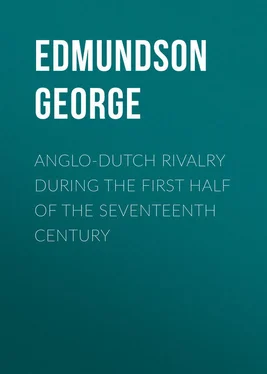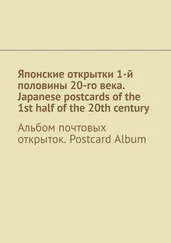George Edmundson - Anglo-Dutch Rivalry during the First Half of the Seventeenth Century
Здесь есть возможность читать онлайн «George Edmundson - Anglo-Dutch Rivalry during the First Half of the Seventeenth Century» — ознакомительный отрывок электронной книги совершенно бесплатно, а после прочтения отрывка купить полную версию. В некоторых случаях можно слушать аудио, скачать через торрент в формате fb2 и присутствует краткое содержание. Жанр: foreign_antique, foreign_prose, на английском языке. Описание произведения, (предисловие) а так же отзывы посетителей доступны на портале библиотеки ЛибКат.
- Название:Anglo-Dutch Rivalry during the First Half of the Seventeenth Century
- Автор:
- Жанр:
- Год:неизвестен
- ISBN:нет данных
- Рейтинг книги:4 / 5. Голосов: 1
-
Избранное:Добавить в избранное
- Отзывы:
-
Ваша оценка:
- 80
- 1
- 2
- 3
- 4
- 5
Anglo-Dutch Rivalry during the First Half of the Seventeenth Century: краткое содержание, описание и аннотация
Предлагаем к чтению аннотацию, описание, краткое содержание или предисловие (зависит от того, что написал сам автор книги «Anglo-Dutch Rivalry during the First Half of the Seventeenth Century»). Если вы не нашли необходимую информацию о книге — напишите в комментариях, мы постараемся отыскать её.
Anglo-Dutch Rivalry during the First Half of the Seventeenth Century — читать онлайн ознакомительный отрывок
Ниже представлен текст книги, разбитый по страницам. Система сохранения места последней прочитанной страницы, позволяет с удобством читать онлайн бесплатно книгу «Anglo-Dutch Rivalry during the First Half of the Seventeenth Century», без необходимости каждый раз заново искать на чём Вы остановились. Поставьте закладку, и сможете в любой момент перейти на страницу, на которой закончили чтение.
Интервал:
Закладка:
'The Spaniards are ceaselessly urging upon the King that for his own interests he ought to use his utmost endeavours in this negotiation in order to bring it to some conclusion, since by continuance of the war the Dutch might come to make themselves masters of those seas. Having their fleets ordinarily of a hundred or more ships, and these widely scattered in different places, they can thus say, and with truth, that they are masters of those seas for the possession of which the ancient kings of England have made very long and very costly wars against the princes of Europe. The King knows all this to be true, but is likewise of opinion that at a single nod of his the Dutch would yield to him all that dominion that they have gained; which without doubt would follow so long as the war with the Spaniards lasted, since they are not able at one and the same time to contend with two of the greatest princes of Christendom. But if with time that ripens affairs peace should be effected between them and the Crown of Spain, I do not know if they would be so ready to yield as the King of England promises himself; since just as this profession of the sea is manifestly more and more on the wane in England, so more and more is it increasing and acquiring force and vigour among the Dutch.'
The perspicacity of this review of the situation was completely justified by the events. On April 9, 1609, after prolonged and acrimonious negotiations, a treaty for a truce of twelve years between the belligerents was signed, but on conditions imposed by the Dutch. To the Spaniards the terrible drain on their resources made a respite from war a matter not of choice, but of necessity. To obtain it they had to treat with the United Provinces 'as if they were an independent State', and, worst of all, they had by a secret clause to concede liberty of trading in the Indies. From this moment the relations of the States with England were sensibly changed. The attitude of King James had hitherto been a mixture of condescension and aloofness, and he had not troubled himself to consider seriously the question of Dutch rivalry upon the seas and in commerce, which had so profoundly impressed the Venetian envoy. Nicolò Molin was in 1607 undoubtedly correct in his supposition that at that date James still looked upon the Dutch as dependents on his favour, who would not venture to run counter to any expression of his will. The course of the negotiations for the truce must have gradually undeceived him, and their issue left him face to face with a power compelled to maintain to the utmost the interests of the extensive commerce on the proceeds of which its very existence as a State depended.
No sooner were the signatures appended to the treaty than James took a step which exposed to a very severe strain his relations with the people whose emancipation from Spanish rule he had, ostensibly at least, worked hard to accomplish. Many indeed in Holland had been suspicious of the real friendliness of his attitude during the negotiations, but very few probably imagined that he was preparing, as soon as they were ended, to put to the test their sense of the value of his services and of his alliance by striking a deadly blow at the most important of their industries. On May 16, 1609, the King issued a proclamation, in which, after stating that though he had hitherto tolerated the promiscuous liberty that had been granted to foreigners to fish in the British seas, he has now determined, seeing that this liberty
'hath not only given occasion of over great Encroachments upon our Regalities, or rather questioning of our Right, but hath been a means of daily Wrongs to our own People that exercise the Trade of Fishing … to give notice to all the World that our express Pleasure is, that from the beginning of the Month of August next coming, no Person of what Nation or Quality soever, be permitted to fish upon any of our Coasts and Seas of Great Britain, Ireland and the rest of the Isles adjacent, until they have orderly demanded and obtain'd Licences from us…'
The news of the publication of this edict caused in Holland no small surprise, not unmingled with indignation. On June 12 the matter was discussed in the States of that Province, and it was resolved 3 3 Res. Holl. June 12, 1609.
that the States-General be requested to adopt measures for the vigorous defence of the land's rights as based upon the treaties. The States-General on their part resolved 4 4 Res. St. – Gen. June 12, 1609.
that a full inquiry should be made into the question of treaty rights and a special embassy be sent to London, and as early as July 6, King James agreed 5 5 Art. 6 of the Treaty between James and the States, July 6 (June 25, 1609, o.s.).
to receive such a deputation, and to appoint commissioners to enter into conference with it on the subject of the privileges and immunities for freedom of commerce claimed in virtue of ancient treaties. Meanwhile the States-General promised the fishermen their protection, at the same time bidding them to be very careful not to give any cause for new complaints on the part of the King. So far indeed were the Dutch from yielding immediate submission to the demand of James, or from admitting its justice, that Sir Ralph Winwood (the resident English ambassador at the Hague), reporting to the Secretary of State, Lord Salisbury, the results of an interview he had had with Oldenbarneveldt September 16, 1609, informs him: —
'the States do write expressly to their ambassador [Noel Caron] urging him to advertise his Majesty their purpose to send to beseech him upon the necessity of this affair [i.e. liberty of fishing] in the meantime to have patience with their people trading upon his coast that without impeachment they may use their accustomed Liberty and antient Privelidges ; which he [Oldenbarneveldt] said they were so far from fear that his Majesty upon due consideration will abridge, as that they hope he will be pleased to inlarge and increase into new ones.' 6 6 Winwood, Memorials , vol. iii.
For a right understanding of the importance of the fisheries question and of the reasons which led King James at this particular time to issue his proclamation, a short retrospect is necessary.
Special rights of free fishing in English waters had been granted to the Hollanders and Zeelanders, as early as 1295, by King Edward I, and afterwards renewed by several of his successors. Finally a treaty was concluded, dated February 24, 1496, known as the Magnus Intercursus , between Henry VII and Philip the Fair, Duke of Burgundy, which was destined to regulate the commercial relations between England and the Netherlands during the whole of the Tudor period, and was still in force in 1609. Article XIV of this treaty ran as follows: —
'Conventum, concordatum et conclusum est quod Piscatores utriusque Partis Partium praedictarum (cujuscunque conditionis existant) poterunt ubique Ire, Navigare per Mare, secure Piscari absque aliquo Impedimento, Licentia, seu Salvo Conductu.'
Nothing could be more explicit or complete, and it was to this clause of the Magnus Intercursus and the rights it had so long recognized that Oldenbarneveldt referred when he spoke to Winwood of the Dutch fishermen's 'accustomed Liberty and antient Privelidges.'
The rights of the Netherlanders to trade and navigate in Scottish waters, 'sine aliquo salvo conductu aut licentia generali aut speciali', were guaranteed by the Treaty of Binche, dated December 15, 1550, which had been confirmed by James himself, as King of Scotland, in 1594. But neither in this treaty of 1550, nor in an earlier treaty of 1541 to which it expressly refers, ' circa Piscationem et liberum usum Maris, ea quae per Tractatum anno 1541 … inita, conclusa ac conventa fuerint debite ac sincere observari debebunt', is there any definite statement that the free use of the sea carried with it the right to fish without payment, though undoubtedly that right seems to be implied, and was certainly exercised without let or hindrance before 1609.
Читать дальшеИнтервал:
Закладка:
Похожие книги на «Anglo-Dutch Rivalry during the First Half of the Seventeenth Century»
Представляем Вашему вниманию похожие книги на «Anglo-Dutch Rivalry during the First Half of the Seventeenth Century» списком для выбора. Мы отобрали схожую по названию и смыслу литературу в надежде предоставить читателям больше вариантов отыскать новые, интересные, ещё непрочитанные произведения.
Обсуждение, отзывы о книге «Anglo-Dutch Rivalry during the First Half of the Seventeenth Century» и просто собственные мнения читателей. Оставьте ваши комментарии, напишите, что Вы думаете о произведении, его смысле или главных героях. Укажите что конкретно понравилось, а что нет, и почему Вы так считаете.












